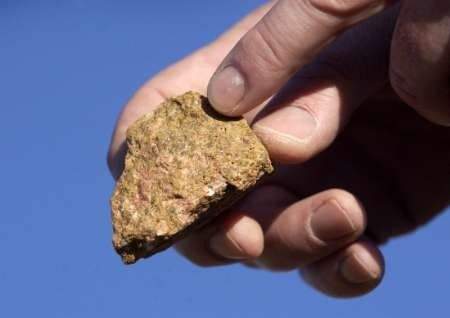China Tightens Grip on Rare Earths Supply

China has put in place tighter controls over unauthorized exploration, mining, processing and sales of rare earth materials, calling them the country's 21st century treasure trove of new materials.
The Ministry of Land and Resources said in a statement on its Web site on Tuesday that local governments have been ordered to crack down on illegal production of the precious minerals which are used in high-end technology products.
According to the statement, the aim is to promote the protection and rational development of the country's rare earth resources and further regulate their production, the China Daily reported.
The statement cites Wang Min, vice-minister at the Ministry of Land and Resources, as saying that rare earths are the vitamins of modern industry and that they are China's 21st century treasure trove of new materials.
China controls a whopping 97 percent of the world's rare earth market, making advanced industrialized nations heavily dependent on it for the supply of these essential minerals. Technically viable alternatives to rare earth materials are currently not known.
Rare earths are indispensable for high-tech industries and are heavily in demand in defense systems, electric cars, wind generators, hard-disk drives, mobile communication, missile guidance and the like. The 17 rare earth elements are lanthanum, cerium, praseodymium, neodymium, promethium, samarium, europium, gadolinium, terbium, dysprosium, holmium, erbium, thulium, ytterbium, lutetium, scandium and yttrium.
China's rare earth policy has been a matter of concern for industrialized neighbor Japan, as well for the United States and the European Union.
Beijing brought in restrictions on rare earths exports last year in order to maximize profit and support domestic high-tech companies. According to China's commerce ministry, the country has the right to cut export quotas to preserve exhaustible resources.
The western world fears that continued clampdown on exports and state control on rare earths trade can cripple the thriving electronics industry of Japan, Taiwan, South Korea and the United States. From iPhones to LED televisions and from electric cars to missile guidance systems, rare earths are an indispensable raw material for all advanced industries.
Export controls on rare earths put in place by China last year had caused serious frictions with Japan and the United States and stoked fears that China would throttle rare earths supply around the world to ensure that its domestic demand is met.
In July, China had offered to ease export restrictions to the near-2010 levels but major trading partners, who want unfettered supply of essential minerals, were not impressed.
This is highly disappointing and the EU continues to encourage the Chinese authorities to revisit their export restrictions policy to ensure there is full, fair, predictable and nondiscriminatory access to rare earth supplies as well as other raw materials for EU industries, EU's trade spokesman John Clancy said, reacting to China's promise.
The USTR spokeswoman said that the U.S. remained deeply troubled by China's use of market-distorting export restrictions on raw materials including rare earths.
The China Daily report says the latest moves of its government were in keeping with its efforts to control environmental damage and protect the resources.
It says measures like suspension of the issuance of new licenses for rare earth prospecting and mining and the imposition of production caps and export quotas had been taken in the past. However, illegal production was rampant despite the government controls as miners sought to profit from surging rare earth prices.
© Copyright IBTimes 2024. All rights reserved.




















